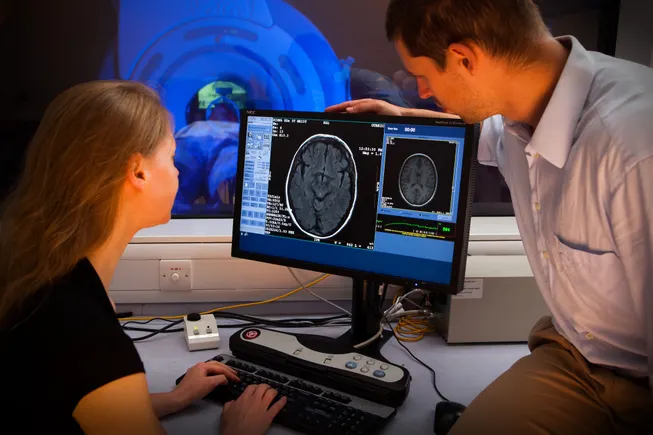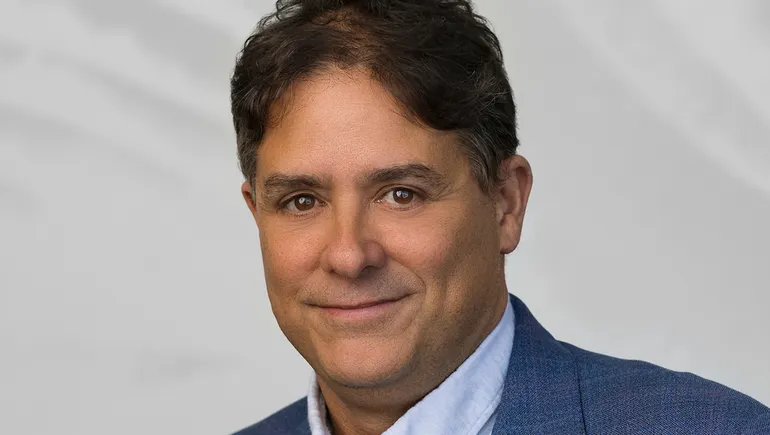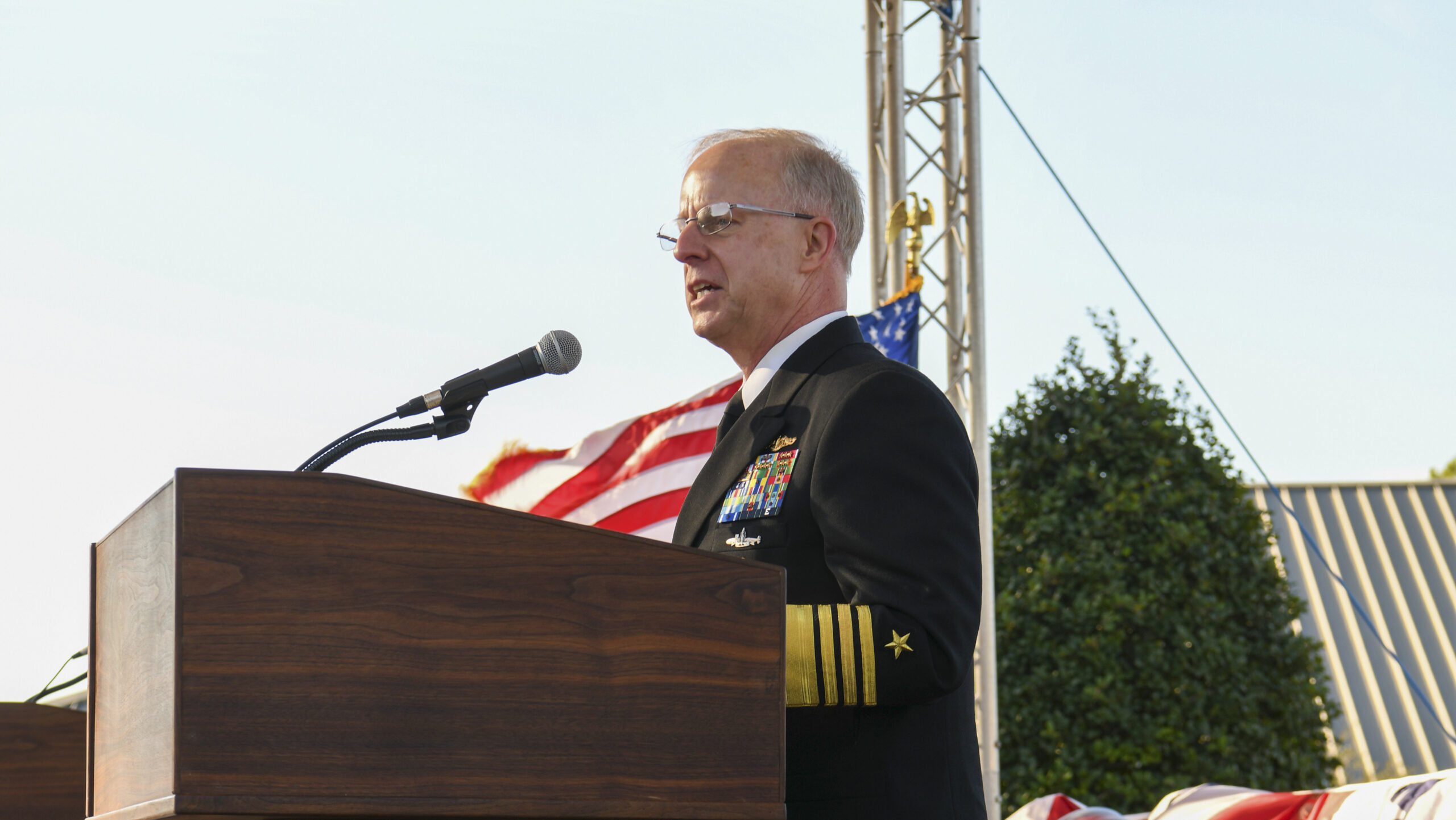Ken Kersch’s Constitutional Imagination: A Student’s View
For the Balkinization symposium in honor of Ken Kersch Dennis J. Wieboldt III I first met Ken Kersch in the fall of 2019 as an undergraduate student at Boston College. The summer before my matriculation, I came across a university social media post about Kersch’s Conservatives and the Constitution and thought that it might be a worthwhile read. For one, it seemed prudent to read something by a professor at the institution I would soon call home. And, as an added benefit, reading a book about “conservatives” seemed likely to be personally instructive for my thinking about American law and politics—both because of my quasi-libertarian ideological leanings and the experience of watching my high school peers react with uniform hostility to then-candidate (and later president) Donald Trump. In short, reading a book about “conservatives” and “the Constitution” appeared well-poised to teach me something about myself and those around me. With the benefit of hindsight, reading Conservatives and the Constitution as a freshly minted high school graduate was equally imprudent and providential. As those familiar with Professor Kersch’s work know well, Conservatives and the Constitution was written for graduate students and experts in the field, not eighteen-year-olds whose only academic engagement with American history was in eleventh- or twelfth-grade A.P. courses. And yet, the copy of Conservatives and the Constitution that I bought six years ago retains evidence of a naive curiosity about the history of American constitutionalism that has yet to abate. In this respect, encountering Professor Kersch’s work as early as I did was providential. Even as I have eschewed the libertarian leanings of my high-school-aged self, I have repeatedly referred back to Conservatives and the Constitution for the personal and professional reasons that once led me to open the cover of that unmistakably orange paperback. On the one hand, the way that Professor Kersch deftly identified the flaws in conservative constitutionalism, and its contributions to the American political tradition, has helped to shape my personal thinking about American law and politics. Equally importantly, Kersch’s revisionist account of twentieth-century American political and legal history has had a decisive impact on my own research agenda. Indeed, many of the question marks that I once placed in the margins of Conservatives and the Constitution have since become central to my own studies of twentieth-century American constitutionalism. Despite having never sat in Professor Kersch’s classroom, I was in every other meaningful respect his student. We first met over coffee in the fall of 2019 to discuss my (admittedly ill-informed) impressions of Conservatives and the Constitution, and met frequently in the years afterwards to review new scholarship in our shared fields and to reflect on my career aspirations. To the best of my recollection, in fact, it was in a conversation with Professor Kersch that I first learned about J.D./Ph.D. programs and the relative (dis)advantages of pursuing a J.D. and Ph.D. concurrently. With his steadfast encouragement, I began a J.D./Ph.D. program in history at the University of Notre Dame in the fall of 2024 and have become increasingly appreciative of the lessons that he taught me about how to study the political and legal history of the twentieth-century United States. In gratitude for all that he taught me as a student, it therefore seems appropriate for me to return to Conservatives and the Constitution to share two lessons that Professor Kersch conveyed both in my personal conversations with him and in his continually influential study of how conservatives “imagin[ed] constitutional restoration in the heyday of American liberalism.” In a 2011 article that presaged a major theme of Conservatives and the Constitution—the pervasive influence of “Declarationism” on twentieth-century conservative constitutional thought—Professor Kersch described Harry Jaffa’s politics as being “imagined” and “involving a perpetual, epic, and millennial conflict between the partisans of (unredeemed) legal positivism, and a (saved) polity anchored in an uncompromising faith in natural law[.]” This was a “conflict,” he continued, “between self-government understood as embodying what the people will, and self-government as embodying a struggle for the polity’s adoption of what it ought to will.”To my mind, Professor Kersch’s most significant contribution to the scholarship on twentieth-century American constitutionalism is his insistence on the primacy of Americans’ constitutional imaginations. According to Kersch, for Jaffa and many other Straussians, the American Constitution is more than a written instrument that created a new framework for productively managing disagreements in a pluralistic nation during the late-eighteenth century. Rather, in Kersch’s view, twentieth-century conservatives (including but not only the Straussians) made certain argum
For the Balkinization symposium in honor of Ken Kersch
Dennis J. Wieboldt III
I first met Ken Kersch in the fall of 2019 as an undergraduate student at Boston College. The summer before my matriculation, I came across a university social media post about Kersch’s Conservatives and the Constitution and thought that it might be a worthwhile read. For one, it seemed prudent to read something by a professor at the institution I would soon call home. And, as an added benefit, reading a book about “conservatives” seemed likely to be personally instructive for my thinking about American law and politics—both because of my quasi-libertarian ideological leanings and the experience of watching my high school peers react with uniform hostility to then-candidate (and later president) Donald Trump. In short, reading a book about “conservatives” and “the Constitution” appeared well-poised to teach me something about myself and those around me.
With the benefit of hindsight, reading Conservatives and the Constitution as a freshly minted high school graduate was equally imprudent and providential. As those familiar with Professor Kersch’s work know well, Conservatives and the Constitution was written for graduate students and experts in the field, not eighteen-year-olds whose only academic engagement with American history was in eleventh- or twelfth-grade A.P. courses. And yet, the copy of Conservatives and the Constitution that I bought six years ago retains evidence of a naive curiosity about the history of American constitutionalism that has yet to abate. In this respect, encountering Professor Kersch’s work as early as I did was providential.
Even as I have eschewed the libertarian leanings of my high-school-aged self, I have repeatedly referred back to Conservatives and the Constitution for the personal and professional reasons that once led me to open the cover of that unmistakably orange paperback. On the one hand, the way that Professor Kersch deftly identified the flaws in conservative constitutionalism, and its contributions to the American political tradition, has helped to shape my personal thinking about American law and politics. Equally importantly, Kersch’s revisionist account of twentieth-century American political and legal history has had a decisive impact on my own research agenda. Indeed, many of the question marks that I once placed in the margins of Conservatives and the Constitution have since become central to my own studies of twentieth-century American constitutionalism.
Despite having never sat in Professor Kersch’s classroom, I was in every other meaningful respect his student. We first met over coffee in the fall of 2019 to discuss my (admittedly ill-informed) impressions of Conservatives and the Constitution, and met frequently in the years afterwards to review new scholarship in our shared fields and to reflect on my career aspirations. To the best of my recollection, in fact, it was in a conversation with Professor Kersch that I first learned about J.D./Ph.D. programs and the relative (dis)advantages of pursuing a J.D. and Ph.D. concurrently. With his steadfast encouragement, I began a J.D./Ph.D. program in history at the University of Notre Dame in the fall of 2024 and have become increasingly appreciative of the lessons that he taught me about how to study the political and legal history of the twentieth-century United States. In gratitude for all that he taught me as a student, it therefore seems appropriate for me to return to Conservatives and the Constitution to share two lessons that Professor Kersch conveyed both in my personal conversations with him and in his continually influential study of how conservatives “imagin[ed] constitutional restoration in the heyday of American liberalism.”
In a 2011 article that presaged a major theme of Conservatives and the Constitution—the pervasive influence of “Declarationism” on twentieth-century conservative constitutional thought—Professor Kersch described Harry Jaffa’s politics as being “imagined” and “involving a perpetual, epic, and millennial conflict between the partisans of (unredeemed) legal positivism, and a (saved) polity anchored in an uncompromising faith in natural law[.]” This was a “conflict,” he continued, “between self-government understood as embodying what the people will, and self-government as embodying a struggle for the polity’s adoption of what it ought to will.”
To my mind, Professor Kersch’s most significant contribution to the scholarship on twentieth-century American constitutionalism is his insistence on the primacy of Americans’ constitutional imaginations. According to Kersch, for Jaffa and many other Straussians, the American Constitution is more than a written instrument that created a new framework for productively managing disagreements in a pluralistic nation during the late-eighteenth century. Rather, in Kersch’s view, twentieth-century conservatives (including but not only the Straussians) made certain arguments about the Constitution because they had particular constitutional imaginations—ways of thinking about our nation’s creedal confession that brought into alignment their hopes and doubts, their aspirations and concerns, about the nature of the American experiment in self-government. Crucially, this led Kersch to argue that it is impossible (or at least imprudent) to understand the history of twentieth-century American political and legal thought without understanding the constitutional imaginations of those who have shaped our nation’s debates about the Constitution. More often than Kersch perhaps felt prepared or equipped, this view led him to reflect often on the role of religion in American political development. This too has been a methodological lesson that Professor Kersch imparted onto me.
As Logan Sawyer’s review of Conservatives and the Constitution rightly acknowledges, the fifth and sixth chapters of Professor Kersch’s final monograph “address the integration of constitutional narratives and religious conservatism” and represent the “care” that Kersch took throughout to “identify … separate streams of conservative thought [in the twentieth century].” Evidence of this care, according to Sawyer, is apparent in Kersch’s “differentiation among the arguments of Catholics, those of Protestant Evangelicals, and those of Protestant Fundamentalists” who were once adversarial but who later found “the intellectual and emotive resources for a lasting alliance[.]”
Neither Sawyer nor Kersch would, I think, have identified themselves as historians of American religion. From my perspective, this makes their shared recognition of the different trajectories on which twentieth-century Catholic and Protestant thinking about the American Constitution traveled all-the-more instructive. Indeed, Conservatives and the Constitution strikingly illustrates how the disparate constitutional imaginations of twentieth-century Catholics and Protestants had downstream effects on their understandings of the American constitutional tradition. For example, Kersch describes at length the centrality of Thomistic natural law philosophy to the ways in which American Catholics articulated their understandings of the Constitution during the twentieth century. This is an insight that Professor Kersch largely discerned from the relevant published primary sources, but in my own work, I have sought to supply the texture and nuance about this relationship (between Catholic Thomism and Catholic constitutionalism) that is most evident in unpublished archival material.
Professor Kersch’s insights into the primacy of Americans’ constitutional imaginations and the important role of religion in the formation thereof remain enduring lessons for my scholarly undertakings. As much as I value those lessons, however, they pale in comparison to the importance that Professor Kersch’s personal model was and remains to me. Indeed, as the other contributors to this symposium attest—and a forthcoming, longer-form symposium in the Journal of American Constitutional History will, I am confident, confirm—Ken Kersch was a man of incredible scholarly selflessness. He asked to (and repeatedly asked again for) the opportunity to read and comment on draft articles, to participate in workshops, and to comment on panels. Even after sharing his cancer diagnosis with me, Professor Kersch was excited to offer comments on my work, sometimes doing so in the midst of his recovery from chemotherapy.
I last saw Professor Kersch (in person, at least) at his apartment near Boston College’s campus in the summer of 2024. I was in Boston at the time to present at a conference at the Institute for Advanced Jesuit Studies; there, I was scheduled to speak about a forthcoming article in the Journal of Law and Religion on (what I term) the “neo-scholastic legal revival.” As I reflect back on that visit, it is almost providential (again) that I should have last met with Professor Kersch as I was finalizing a project that so clearly illustrates his influence on me, and that I should have done so so near to a campus that prides itself on the personal formation—not merely professional education—of its students.
I never asked Professor Kersch what, if anything, he thought about Boston College’s Jesuit, Catholic mission and its aspiration to do more than merely prepare students for successful professional careers. No matter what he might have responded if I had asked him, however, I remain a firm believer that Professor Kersch embodied the mission of Boston College in superabundant fashion. Professor Kersch’s genuine care for his students and colleagues, interest in their lives, and love for the central, truth-seeking mission of a university model the attributes of teachers-scholars that an institution like Boston College seeks to attract to its campus.
Like the twentieth-century figures whom he studied, Ken Kersch had views about the Constitution and the world that emanated from his constitutional imagination. With the benefit of hindsight, I wish that I would have asked him more about that imagination. But even after his passing, I am confident that I will continue to learn from the parts of it that he shared with the world. And so, as an eternally grateful student, I can only hope that, in my own life, I pay forward at least some lessons that I learned from Ken Kersch’s constitutional imagination.
Dennis Wieboldt is a J.D./Ph.D. student in history at the University of Notre Dame, where he is a Richard and Peggy Notebaert Premier Fellow at the Graduate School and Edward J. Murphy Fellow at the Law School. He can be reached at dwiebold@nd.edu.



































































































![[Updated] U.S. Air Force Mobilizes F-22s and F-35s as Situation in Middle East Escalates](https://theaviationist.com/wp-content/uploads/2025/06/F-22_F-35_CENTCOM-top.jpg)





































